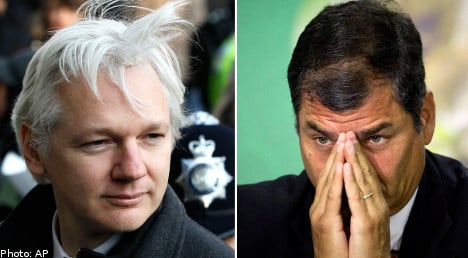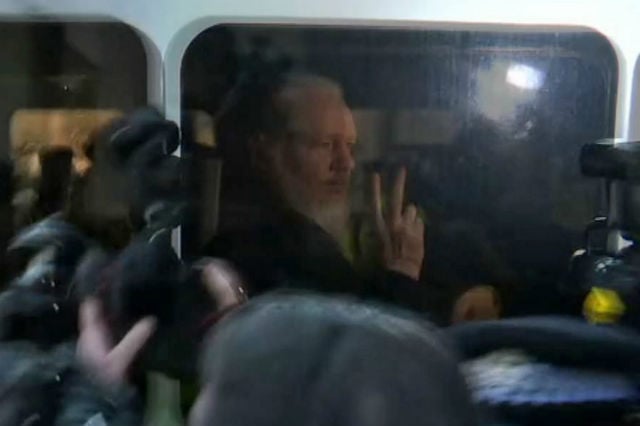“The rumor of asylum for Assange is false. No decision has yet been taken.
Awaiting report from the foreign ministry,” Correa wrote on Twitter.
Assange, 41, took refuge at Ecuador’s embassy in London on June 19 to avoid
extradition to Sweden, where the Australian national faces police questioning
over sexual assault allegations.
But he also fears being extradited to the United States to face charges over WikiLeaks’ publishing of a trove of secret documents, including information relating to the wars in Iraq and Afghanistan, and countless diplomatic cables.
Correa’s statement came after Britain’s Guardian newspaper said on its
website Tuesday that Ecuador was set to grant Assange asylum, citing an
unnamed official in Quito.
“We see Assange’s request as a humanitarian issue,” the official told the Guardian.
“It is clear that when Julian entered the embassy there was already some sort of deal,” the official added.
Correa later told reporters in the southwestern port city of Guayaquil that the Guardian “is a very serious newspaper, but I don’t know what source they used.”
In an interview late Monday, Correa said he expected to respond to Assange’s political asylum application later this week.
“We expect to have a meeting no later than Wednesday,” Correa said, referring to his diplomats in London.
Even if his asylum request is granted, it is unclear whether Assange will be allowed to travel to Quito as British police are waiting outside the embassy ready to arrest him for breaching the terms of his bail granted in 2010.
He has embarked on a marathon round of court battles, but finally exhausted
all his options under British law in June when the Supreme Court overturned
his appeal against extradition.
The mother of the WikiLeaks founder met with Correa earlier this month to
discuss the fate of her son.



 Please whitelist us to continue reading.
Please whitelist us to continue reading.
Member comments